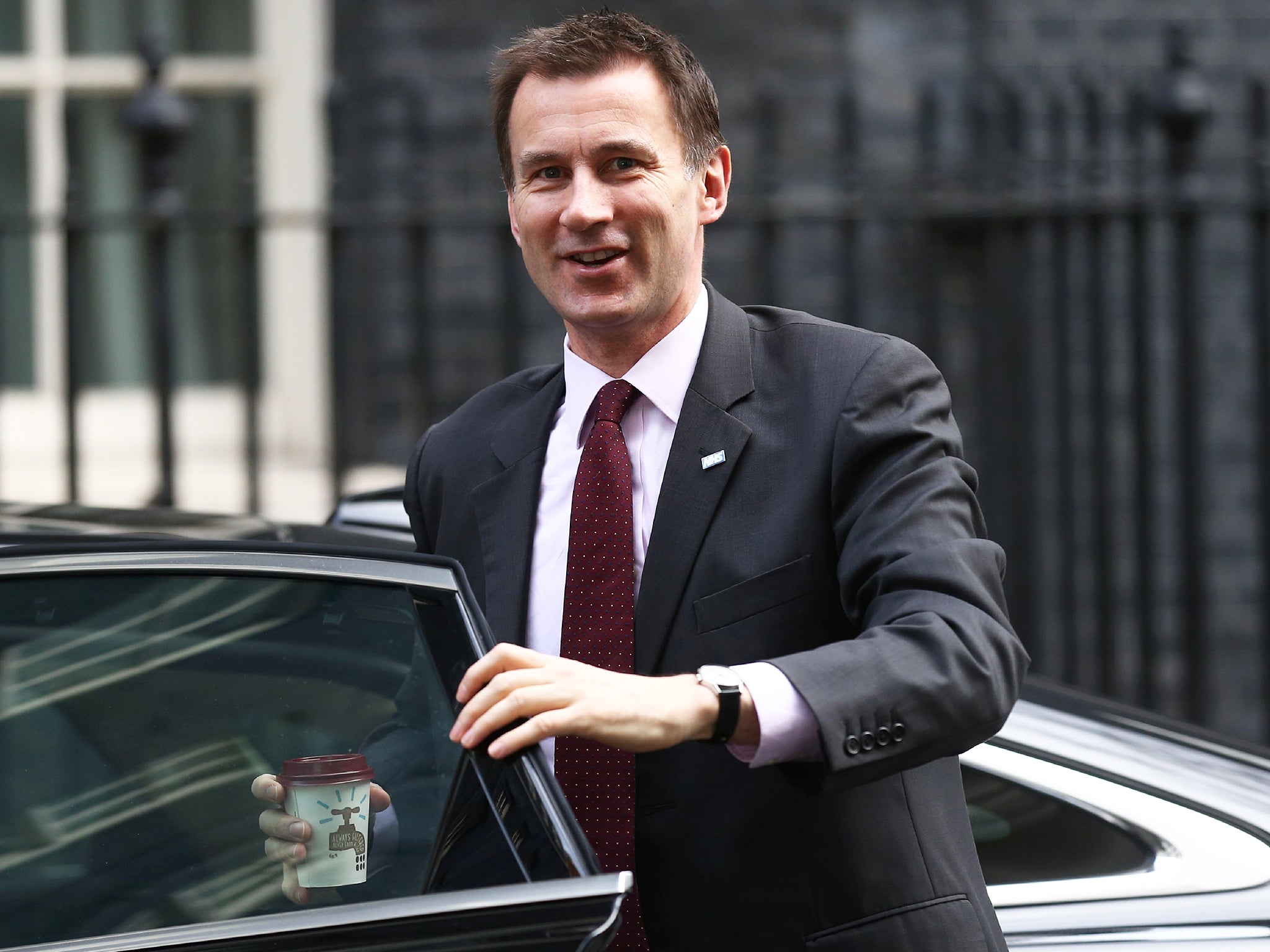Huge leak of data reveals junior doctors leaders discussed drawing out dispute for a year
Junior doctors leader revealed to have said: ‘The more I think about it the more I love our plan. Basically five weeks of headlines about juniors strikes through January and February’

Your support helps us to tell the story
From reproductive rights to climate change to Big Tech, The Independent is on the ground when the story is developing. Whether it's investigating the financials of Elon Musk's pro-Trump PAC or producing our latest documentary, 'The A Word', which shines a light on the American women fighting for reproductive rights, we know how important it is to parse out the facts from the messaging.
At such a critical moment in US history, we need reporters on the ground. Your donation allows us to keep sending journalists to speak to both sides of the story.
The Independent is trusted by Americans across the entire political spectrum. And unlike many other quality news outlets, we choose not to lock Americans out of our reporting and analysis with paywalls. We believe quality journalism should be available to everyone, paid for by those who can afford it.
Your support makes all the difference.The junior doctor leadership of the British Medical Association discussed “drawing out” their contract dispute with the Government for more than a year, a huge leak of private messages sent between the union’s committee members reveals.
Despite publicly stating throughout their dispute that a solution could be reached if the Government was willing to negotiate, Dr Johann Malawana suggested to junior doctor committee members in December that “the best solution may actually [be] to draw this right out” and proposed “a strategy that tied the DH [Department of Health] up in knots for the next 16-18 months”.
The messages, contained in a WhatsApp group, dated between November and May, were leaked to the Health Service Journal. A BMA spokesperson said the “private discussions” should not be mistaken for the settled view of the BMA’s junior doctor committee.
In another message, dated 4 January, Dr Malawana described renewed negotiations supported by Acas as “rubbish”, but reminded members of the need to “play the political game of always looking reasonable”.
The messages also reveal that, in December, another committee member and former chair, Dr Kitty Mohan, described the issue of Saturday pay as the “only real red line” for negotiations – appearing to contradict the BMA’s public statements that the negotiations still needed to address issues of patient safety and working conditions as well as pay.
Dr Malawana goes on to say: “I would think then we need to negotiate every other aspect of the contract. Get it all locked down to establish a high watermark. And then have a think about how you get rest agreed.
“It might be that we then have to use IA [industrial action] as a genuine tool once again. But we would do this in a series of negotiations that are interspersed with IA [industrial action].
“The more I think about it the more I love our plan. Basically five weeks of headlines about juniors strikes through January and February.”
The dispute between the Government and the BMA led to five strikes over six months, including the first all-out walkout by junior doctors in the history of the NHS. A settlement was finally reached last week, which junior doctors around the country will now have the chance to vote on.
The messages reveal that the junior doctor committee discussed conceding on plain time for working Saturdays in May, after an intervention by the medical royal colleges, requesting both sides to get back around the table.
The settlement finally agreed with the Government included major concessions on Saturday pay from the BMA, but also significant new measures to improve working conditions, career progression and recognition for junior doctors.
A BMA spokesperson said: “These conversations go back over six months and reflect the anger and frustration felt by junior doctors across the country due to the government’s refusal to listen to their concerns.
“Private discussions should not be mistaken for the agreed strategy of the BMA Junior Doctors Committee, which was communicated publicly.
“It is less what was said during the heightened atmosphere of the biggest dispute between junior doctors and the Government for 40 years that matters. What’s important is what was done in order to reach a negotiated agreement and ensure that the long-term interests of patients and the NHS are protected.”
Subscribe to Independent Premium to bookmark this article
Want to bookmark your favourite articles and stories to read or reference later? Start your Independent Premium subscription today.
Join our commenting forum
Join thought-provoking conversations, follow other Independent readers and see their replies
Comments